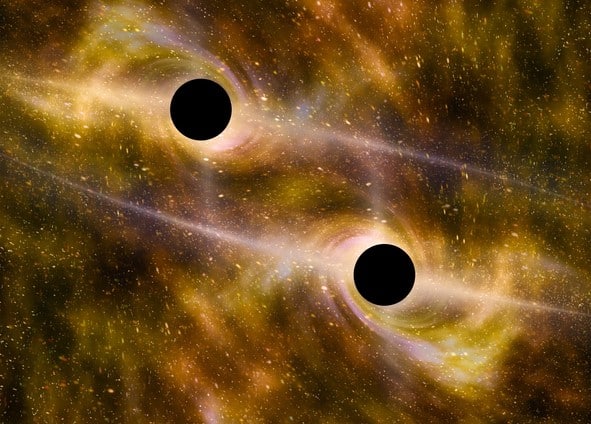Gravity is a fairly heavy subject, so the Australian National University (ANU) has weighed in on the global hunt for gravitational waves with a remote control to the best gravitational wave observatory on the planet.
That’s simplifying things a little (Astronomy for Dummies) but basically, the ANU has a remote control room that can monitor the most extreme events in the universe, via the world’s best Laser Interferometer Gravitational Wave Observatory (LIGO) in the United States.
Why the search for gravitational waves? To unlock some of the most hidden secrets of our universe, that’s all. For example, gravitational waves can mean the instant the cores of massive stars collapse and the permanent distortion of space-time.
Who knew gravitational wave science was so exciting? And Canberra’s ANU is front and centre of this quest.
The shift work is a killer, however, with ANU professor Dr Lilli Sun operating on US time for the initial wave of observations.
“The ANU LIGO remote control room creates a virtual environment for us to ‘sit at the detector,’ monitoring and understanding the response of the detectors in real-time, which is essential to accurate and precise calibration,” Dr Sun says.
When the US detects something exciting, ANU researchers can see it in real time and deploy telescopes to verify what the event might be.
Gravitational waves are mere ripples in space and time, so they are weak and extremely hard to detect. It needs the cataclysmic collapse of a massive star or the merger of two extremely compact objects such as black holes or neutron stars for the waves to be detected on Earth.
It’s not unlike searching for the tip of a needle in a massive haystack. However, with the LIGO detectors at their highest sensitivity yet (boosted by the ANU’s own 2.3-metre telescope that responds to gravitational wave detections in minutes rather than hours) Canberra scientists are excited to hear what the universe has to say. “Australian universities and scientists have played a fundamental role in the hunt for gravitational waves for many years,” Dr Sun says. “The work we are doing here at ANU will provide a more powerful detection mode for gravitational waves than has existed ever before.”
Get all the latest Canberra news, sport, entertainment, lifestyle, competitions and more delivered straight to your inbox with the Canberra Daily Daily Newsletter. Sign up here.



